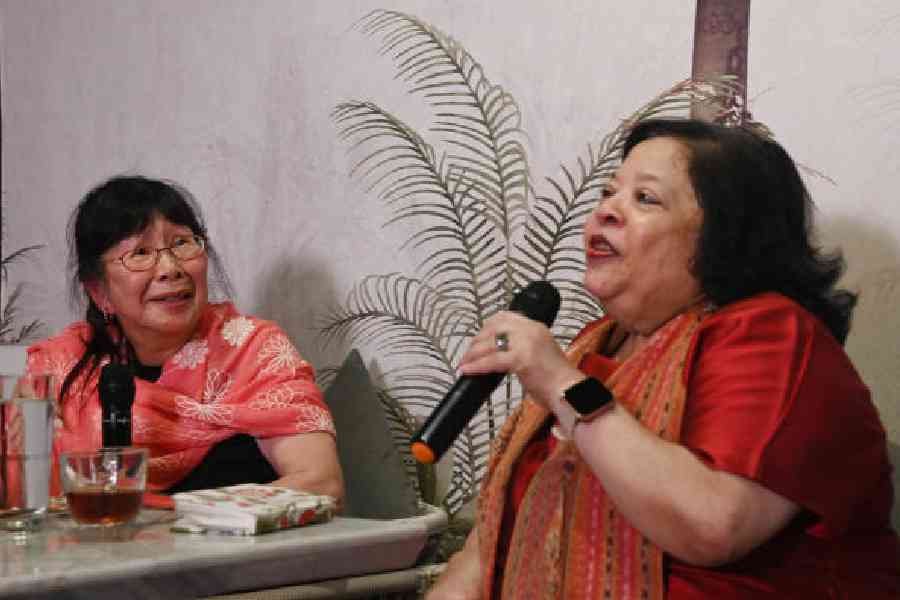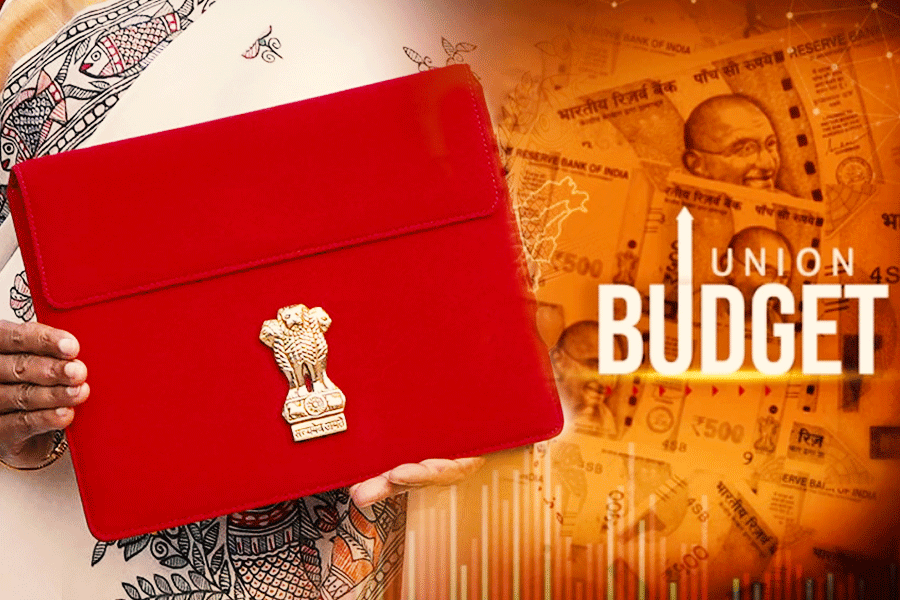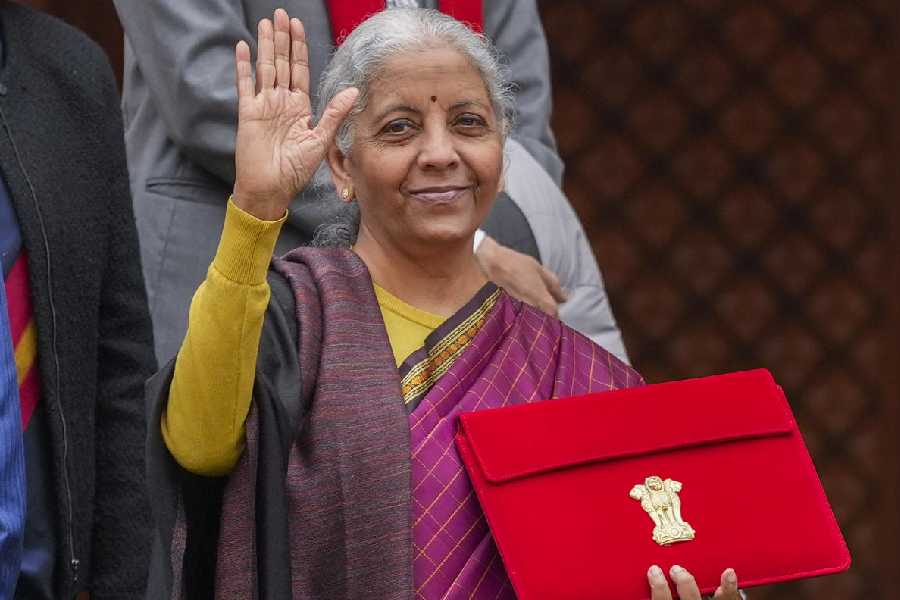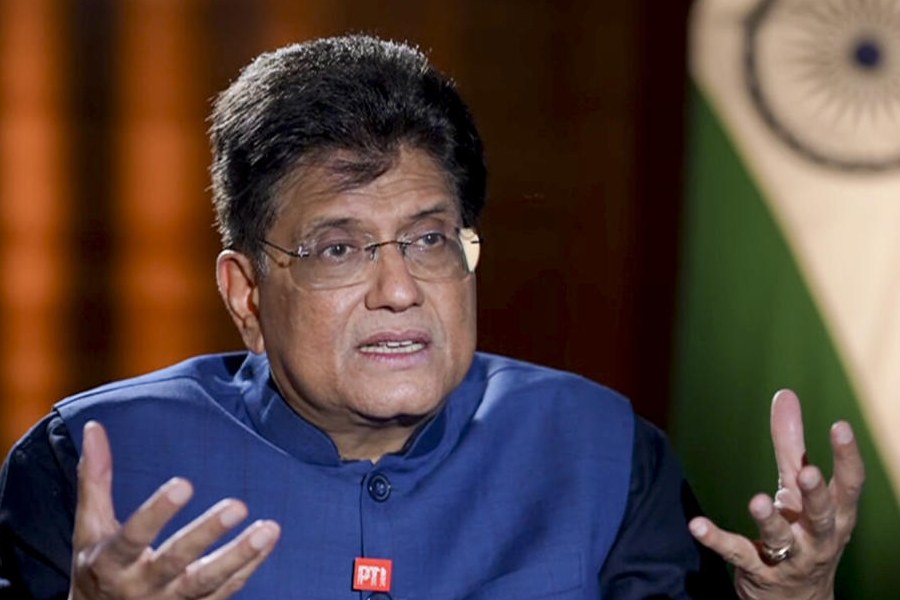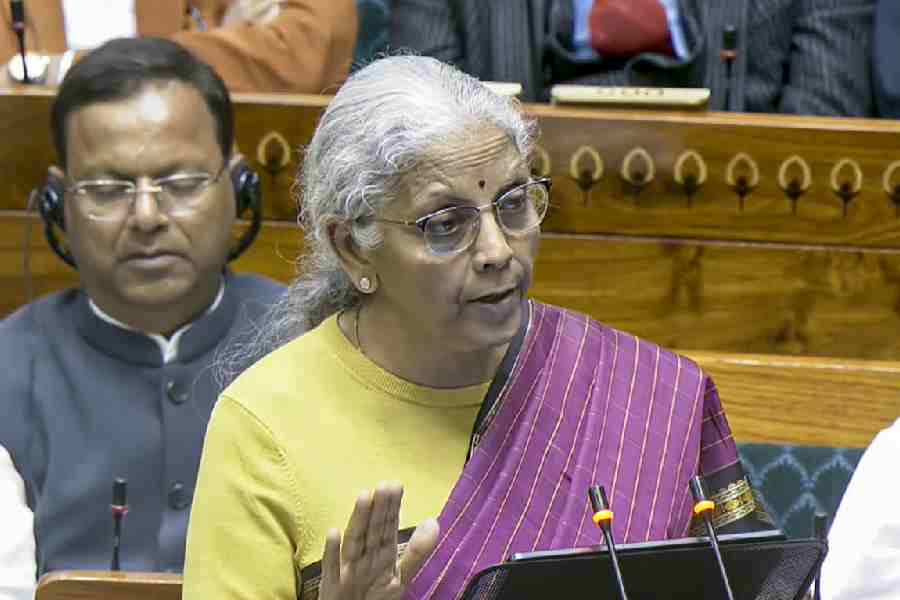When it comes to the question of identity, there seems to be a perpetual hue and cry around the concept of labels. Labelling oneself so as to truly ‘fit in’ to a set of several pre-supposed states of existence. Where one is from, what one identifies as, who one really is. And while this is an intrinsic part of the human condition – to wonder where and how we are placed in this world – the intensity of these labels is often enforced in extremes, only to create situations that leave behind detrimental effects.
The politics of identity, belonging, and the overall idea of ‘home’ was the encompassing theme of the Rising Asia Literary Circle’s latest discussion, held at the picturesque Bhawanipur House near Jatin Das Park on March 20. Moderated by professor and t2 columnist Julie Banerjee Mehta, the meeting featured a conversation with Indo-Chinese-Canadian author Kwai Yun Li, who was born in Calcutta to Chinese parents in the 1950s and emigrated to Canada as an arranged-marriage bride two decades later. Li’s experiences growing up in Calcutta, and indeed the life stories of the often-overlooked Chinese community in the city, have been brought to the forefront in her book The Last Dragon Dance: Chinatown Stories. While tales of the arrival of the Chinese in India are the stuff of legend, their departure has been far less romantic, shaped by political and economic turmoil that has, in recent times, forced many to leave their homes. Today, the Chinese community in Calcutta is slowly dwindling away.
Li’s book is one of assimilation. While growing up in 1950s Calcutta meant blending Indian and Chinese traditions, the community was nevertheless frequently reminded of its outsider status. Ideological and political divides saw hundreds deported or imprisoned, further fracturing their sense of belonging. Yet, rather than dwelling in nostalgia or lament, Li approaches these realities of her life with warmth and wit, capturing the peculiarities of her community with humour, restraint and grace.
At The Bhawanipur House, amidst cups of tea and steaming hot fish fries, the conversation touched upon everything from inspiration to identity, from roots to re-established homelands, and stories of fishing on rainy days in Calcutta to celebrating Diwali in Toronto. To begin with, Kwai spoke of her childhood in the city, and how, when in Canada, her stories began to gain recognition.
“I decided to take an English course at the University of Toronto, and one of our assignments required us to hand in a piece of writing. So I wrote about the monsoon in Calcutta, and how, when our house got flooded, I once caught a fish in my bedroom and we cooked it and ate it with soy sauce and rice. And the professor thought it was very interesting, so that’s when I thought I’d actually sit down and write that story. And then the Canadian Broadcasting Corporation picked it up, and I said, ‘You like that? I got a lot more!’ That’s how I really started,” Kwai shared at the session.
Kwai also affirmed that it is not easy to be a writer anywhere in the world, more so when one has so many stories about being marginalised in an otherwise progressive state. “It’s interesting you ask me about carrying my memories of Calcutta over to Canada, because part of me remembers only the hard stuff,” she said at one point during the session. “But then there’s the good bits of growing up in Calcutta, too, and I have my mother to thank for that. She tried to instil positivity in us from a very young age, and today as I speak to you, I realise I’ve picked up much more from my mother’s way of thinking than I had previously realised. I used to get very upset when I was younger – like, we used to sell beansprout in the market and sometimes it wouldn’t sell and then we wouldn’t have money for meals. But it’s okay, my mother would say – tonight, we’ve got noodles! As I’ve grown older, I’ve realised keeping that positive mindset is very important. That’s what my mother used to say. She taught me not to worry too much, and I think that has found reflection in my work.”
Moving on to discuss the theme of identity and belonging, Kwai said she keeps mixing up her languages. “I speak Mandarin, Cantonese and Haka, but things for me are sometimes just feelings, which I then try to translate into English. I have trouble with my languages, but I think that’s how it works for a lot of writers,” she laughed, which was met with much corroboration both from Julie as well as from all the audience, most of whom were writers themselves and big admirers of Kwai’s work.
When asked where she feels the most at home, Kwai had an answer that moved us all. “When I’m in Canada, I miss China. And when I’m in China, I feel, ‘I want to go back in a heartbeat to Toronto’. So this whole idea of identity, I think, is something that is constantly changing, at least for me. It isn’t permanent. You might be in a very happy place and then suddenly one memory from the past will have you crying tears. It’s the same for me, and initially, I used to have a major identity crisis. At the University of Toronto, whenever I told people – Indian or Chinese – that I was from Calcutta, nobody would believe me. But finally I realised that all of this was based on the assumption that identity is exclusive; that you either belong to India, or you belong to China, or you are Canadian. And that’s really a silly hurdle to be crossing, especially in a world that’s become as cosmopolitan as it is today. We need to get past that. Identity is not, and never needs to be, exclusive. You can be all three or all four or all five, and it is actually quite liberating when you are able to cross that boundary. So I have no idea where my real home is, or if I have one at all. My real home is where I am,” Kwai said, reiterating the fluidity of identity and belonging. In the end, home isn’t a place on the map for her — it’s the freedom to exist between worlds without needing to choose just one.

